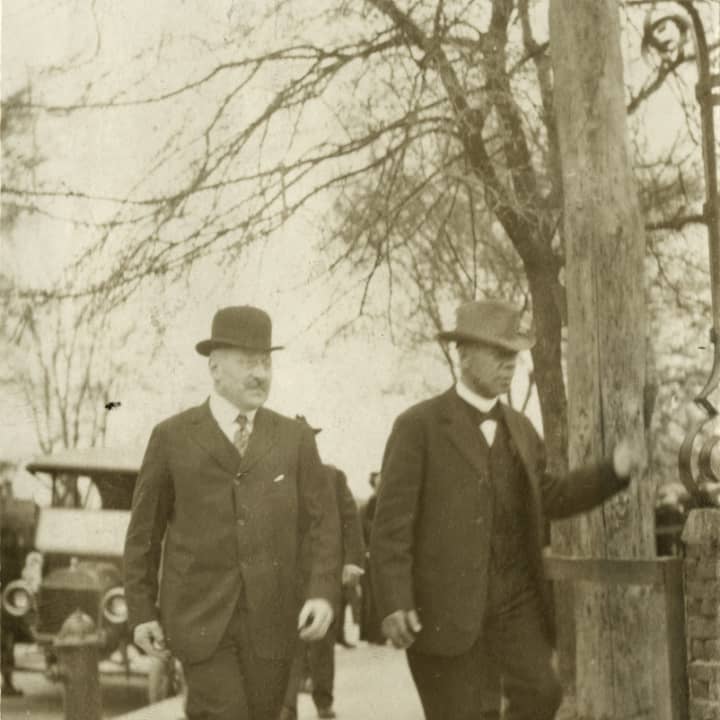Ascoli is the son of Rosenwald's youngest daughter, Marian Ascoli, who donated 150 acres to Teatown Lake Reservation in Ossining, and was a leader in that institution for many years.
The film is part of Burns' Westchester Jewish Film Festival which runs March 30 to April 20.
Rosenwald, for those who don't know, was the son of an immigrant peddler who became one of America's most effective philanthropists and social activists.
Though he died ten years before Ascoli was born, his grandson wrote a biography on him that was published in 2006. It did not serve as the basis for the film, but the filmmaker, Aviva Kempner relied on it heavily, explained Ascoli. "She got interested in the topic of Rosenwald around 2003," he said. "I was consulted on many things having to do with the film, and am in the movie at several points as a 'talking head.'"
Ascoli, who grew up in New York City and at Cliffdale Farm, his parents' summer home and weekend retreat, said, in the late 1930s, his mother rented a house at Little Lake on Glendale Road in Ossining. One day, she took a walk through the woods, discovered the Farm and fell in love.
"Around 1940, the owner of Cliffdale, a Mr. Barker, died and my mother bought the property on Teatown Road, including some 200 acres of woods and fields," he said. She remained active in Teatown Reservation until her death in 1991, leaving most of the 200 acres of woods and fields to the organization.
The philanthropy apple, in other words, didn't fall from the tree.
As for Rosenwald, Ascoti said viewers may be surprised to learn the number of schools his grandfather helped finance for black children in the rural South between 1913 and 1930 -- more than 5,300 in five Southern states.
"These schools lasted until the Cvil Rights era of the 1960s, so many thousands of children got their first shot at an education in these schools," he said.
Go to www.burnsfilmcenter.org/ for more information. A second screening will take place on Saturday, April 16 at 2:30 p.m.
Click here to follow Daily Voice Pleasantville and receive free news updates.


